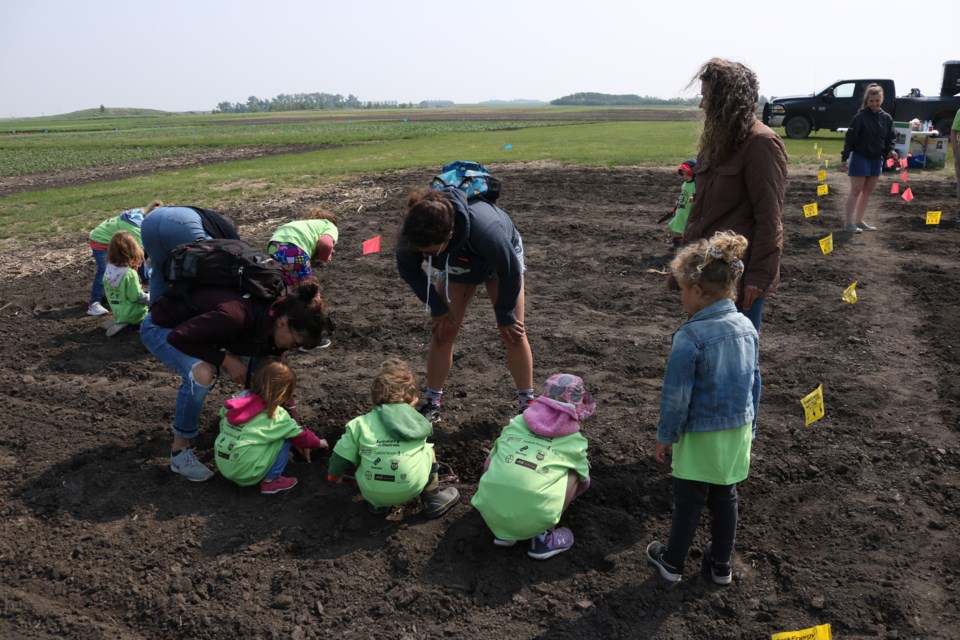YORKTON - I’m sure there has to be someone famous who long ago observed that the best ideas are often the simplest but in this case it remains relevant.
Last week more than 370 Yorkton and area Grade 3 students learned more about where their food comes from as they participated in the now long-running ‘Food Farm Program’.
It is the Food Farm Program, now in its 10th year which is a simple idea but also one which is rather brilliant.
The simplicity comes from the basic premise of helping youth better understand and appreciate where their food comes from – farms – by giving them a day of hands-on education related to farm production.
Classroom education is of course the core of schooling, but when students get out of the school with an opportunity to learn it tends to stick in the mind because it was a different experience. Personally I recall class trips to Batoche, to the Natural History Museum, to a wild area south of my hometown to investigate nature far more keenly that any class of algebra, and hands-on elements such as dissecting a frog stick too.
That the idea of Food Farms is only a decade old is perhaps the most surprising thing, but a huge pat on the back to whoever came up with the idea when Yorkton people pioneered the idea of bringing students out in the field to learn about farming and food production when a ‘Pizza Farm’ concept was launched, explained Agricultural Program Specialist Rachel Kraynick, with the provincial Ministry of Agriculture.
Not surprisingly a good idea tends to be picked up by others -- in Swift Current it became a ‘Burger and Fries Farm’ and in Prince Albert the focus was what farmers produce which goes into soup.
Now 10 years later the program is under the umbrella of Agriculture in the Classroom Sask. with 10 sites across the province hosting food farms. Frankly it probably should be in far more communities.
The reality is that even in small and medium sized cities youth are increasingly not connected to the farm.
We know of course that there are fewer and fewer farms – it’s a trend dating back to the end of World War One – and so less children are raised on farms.
But it goes beyond growing up on a farm. Increasingly youth do not have close family operating farms either, so even weekend visits that would have youngsters seeing a combining up close in the fall, or young calves with their mothers, or help collect eggs don’t happen.
Food doesn’t come from a farm as much as the thought it comes from the store, with no greater understanding of the actual source of a quart of milk than a bottle of cola.
That is frightful for two very-obvious reasons.
On one hand it’s difficult to make good decisions regarding nutritious food and being food secure with limited knowledge of where food comes from.
And, an uniformed populace in terms of farming is concerning to producers because the consumer can make decisions which are based on little understanding of food production.
Food farms are not of course the complete answer to ensuring people know more about their food, but it is a step in the right direction.






